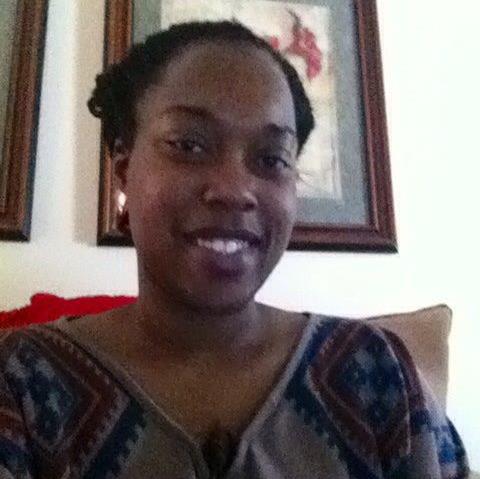At Fertility Chef, we are well aware that PCOS is a syndrome that spans from adolescence through menopause and can touch on many different areas of a woman’s life. Emotional, physical, and social aspects of dealing with PCOS are just a few of the things that make this such a challenging journey. We love to hear from women who are tackling this disease one day at a time while learning to love their bodies and their life. There is nothing more awesome than a girl kicking butt. If you would like to share your PCOS journey with our readers please get in touch with us here: http://www.fertilitychef.com/contact/
– Fertility Chef
How long did you deal with PCOS symptoms before being diagnosed? What was the trigger for pursuing a diagnosis?
I was 17 years old when I was diagnosed with PCOS. My most physical obvious symptom was hair growing on my lip. Which, at the time was no big deal, I would just get my lip waxed when I got my eyebrows arched. My mom, however, was concerned about my ever so absent menstrual cycle. She took me to her gynecologist, there I underwent several diagnostic exams. One that traumatized me for a while. I had a vaginal ultrasound. I was still a virgin at the time, and the pain was unbearable. Soon after, my diagnosis of PCOS was confirmed. I was told that I would be unable to have children amongst other de-feminizing prognosis. I never wanted children, that part alone was an easy blow. The humiliation I suffered during the diagnostic phase was pure shame of the vaginal ultrasound. After my diagnosis, my symptoms stayed the same- unwanted facial hair, irregular menstrual cycles, and weight gain.
What did you know about PCOS before being diagnosed?
I knew absolutely nothing about PCOS before being diagnosed. During my diagnosis, my doctor informed me that it can be caused by genetics. As I looked observed my maternal and paternal linage, I realized my maternal aunts exhibited some of the symptoms of PCOS. My mom and aunts all suffer from unwanted facial hair, yet they never exhibited shame for having it. I have one maternal aunt who had difficulty conceiving. I naturally assumed PCOS was handed to me by my lovely ever so giving maternal genes.
How has PCOS affected your relationship with your significant other? How can we increase awareness / sensitivity towards PCOS among men?
PCOS has had no negative influence on my intimate relationship with men. It rarely comes up in conversation. I have never not dated the man of my dreams or current desire because of PCOS. I do, however, believe overall men are uneducated about the female body. Most woman are unaware of the greatness of their wombs also. Increasing awareness towards PCOS among men starts with an educational conversation. I believe, this should be taught at the collegiate level. During that time, young adults have the mental capacity and maturity to process the broad and descriptive details of PCOS. PCOS, has the potential to affect a woman’s psyche, emotional, and physical well-being. As well as relationships with others. For this reason, I think it should be taught in Women and Gender courses.
What lifestyle or diet changes have you had to make and which ones have worked best for you?
Exercising and a well-balanced diet have proved effective for me when combating PCOS. I have proved this not once, but twice. Each time I lose weight, I witness my PCOS symptoms diminish. My menstrual cycle comes regularly without the aid of birth control. My facial hair grows slower and thinner. Yet, when I see such progress, I get happy with my results and stop. This month I will be 27, after playing tug-of-war with my body and PCOS for a decade, I am ready and willing to commit to a lifestyle that I will not quit after seeing results.
Are there any special challenges you have faced treating PCOS?
I am a pescatarian, a vegetarian that eats seafood. This has been particularly challenging when researching PCOS diet plans. Most plans include chicken and turkey meat based recipes. I am not a fan of wet food. Which includes but is not limited to coleslaw, potato salad, macaroni salad, anything with gravy, and soup. Often times, I create my own meals. It is a trial and error process.
For women interested in trying lifestyle and diet changes as part of their PCOS management, how would you recommend they start?
I would recommend starting with research. As an African American with PCOS, there isn’t a lot of websites, blogs, or literature that support or define PCOS as it relates to our culture. It is often unheard in our community to discuss, especially as a young adult. I know, that my starting and stopping has come from a place of misunderstanding. No one in my immediate family can offer advice, my friends have seeming normal wombs, and my doctors have treated me like the average patient. Primarily, focusing on my reproductive needs. I do not want children, so being able to have children is not my driving force in taking of my womb or easing the symptoms of PCOS. I want to live a long life where I actively fight against preventable diseases. Untreated PCOS can lead to damaging diseases later in life. Research has been my greatest advocate while combating PCOS. Knowledge is power.
What’s the one message that you think our readers should take-away if they are diagnosed with PCOS?
I want all those to know and believe that PCOS does not control you but you control PCOS.

